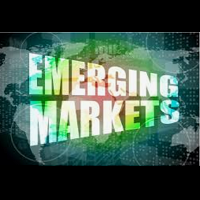Emerging markets are expected to drive nearly two-thirds of global economic growth by 2035, marking a significant shift in the world economy. According to S&P Global’s latest Look Forward research study, these markets will play a critical role in shaping economic trends, though they’ll face notable challenges. The study anticipates that emerging markets will see accelerated growth in areas such as energy transition, supply chain integration, and improvements in labour productivity. However, obstacles like geopolitical tensions, climate change, and limitations to trade could impact this trajectory.
Growth in these markets will likely average 4.06% annually through 2035, compared to 1.59% in advanced economies. Asia’s emerging economies, particularly China, India, Vietnam, and the Philippines, are poised to drive much of this expansion. Certain countries, such as Malaysia, stand out for their market potential, favourable policies, efficient logistics, and resource availability. Other nations like Brazil, Indonesia, and India also show strong potential for continued economic advancement.
Despite these promising projections, income levels in emerging markets will still lag, with the median GDP per capita in the largest emerging markets predicted to be only 31% of that in developed countries by 2030. Additionally, public debt is expected to rise in most of these economies, though improved external positions, higher reserve buffers, and effective monetary policies make them more resilient to global financial shifts than in previous decades.
One crucial challenge for these markets lies in maintaining supply chain-led growth amid competition from low-cost labour in frontier economies and increasing automation in developed countries. For sustained growth, emerging markets will need to focus on skills development and manufacturing automation. In addition, these regions are likely to adopt a unique approach to decarbonisation, shaped by a mix of policies and market-driven investments in renewables. Abundant resources and declining technology costs are expected to lead to significant investments in clean energy, with approximately 6,000 gigawatts of renewable energy projects anticipated by 2040, requiring more than $5 trillion in investment.
In the next decade, emerging markets are positioned to not only fuel global growth by expanding their domestic economies but also to benefit from shifts in global supply chains, trade patterns, and investment flows. Yann Le Pallec, head of global ratings services at S&P Global Ratings, highlights that this shift will place emerging markets at the centre of the global economic landscape.
With their projected growth trajectory, emerging markets are set to become a driving force in the world economy, with significant contributions to both traditional and green sectors, paving the way for a more integrated and diverse global economy by 2035.
Fidelity Emerging Markets Limited (LON:FEML) is an investment trust that aims to achieve long-term capital growth from an actively managed portfolio made up primarily of securities and financial instruments providing exposure to emerging markets companies, both listed and unlisted.



